|
a new rock tune, completed today ( 4-26-18 ) called "Crisis" featuring Robin O'Brien on backing vocals.
Free streaming or download at Soundcloud This is about inflexibility between people, nations and anyone else who cannot disagree without resulting to violence or debasing behavior. There’s got to be a better way, a way of grown ups.
6 Comments
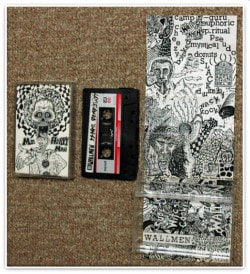 A new exclusive piece by writer George Charpied on some of his early experiences but also a fleshed out perspective on the scene in its glory days and then what came after. George Charpied: "The Global Cassette Community in the 1980's/ After and Into the Digital Age" at The Living Archive of Underground Music What does something that came after the Cassette revolution have to do with it? Ok, we know the Internet didn't really get going until about 1995 and of course the potential was unfulfilled at the time. No easy downloading music then, no streaming movies, no cell phones in everyone’s pockets. Cassette Culture was pretty much wrapping up its show by then, or not long after. We all knew some of what the future would hold. More net speed, easier and faster communications, unimaginable amounts of music and videos in our pockets, no getting lost in unfamiliar neighborhoods, the ability to find pizza and coffee and record stores in any town you visited, the answers to stupid questions in bars and parties, etc. I don't think many of us realized the sea change and the pervasive nature that phones would come to represent at the time. Who knew that the desk top computer itself would almost be an afterthought by 2018 and that the phone was the center of the universe? Will the phone eventually go the same direction as records, cassettes, and CDs? Man, that is tough to know but it seems that this one may hang around for a long time. Of course it may not be a “phone” that way we see it now. Maybe a watch, an attachment to our glasses…what about a brain implant? So for our purposes in 1995 the tape scene was gone, the community essentially disbanded (except for pockets), CDs and CDRs the new platform for musical artists. I got my own digital recorder in 2002. It was an 8 track BOSS 1180 made by Roland. It provided me with a new clarity of sound, hundreds of built in effects and the ease of burning CDs directly from it. I also got the first of many CDR dubbing decks soon too. It took some time for the cost of digital equipment to come down in price but eventually it was more or less affordable. This was now a great way to do high quality sounding collaborations with others. This is something I have always loved and with tapes the degrading tape hiss from too many generations was not fun. Not a game changer for me but something I wished was better. The new digital set up immediately solved this. In fact, I still use the 8 track today ( in combination with Garageband on my Mac ) to record my tunes. I was really stoked with my first digital collab album with Eric Wallack called “Disappearing Act”. This was like a dream come true….complete silence between tracks and in the places during the songs when stillness and quiet was needed. The sound also jumped from the speakers. So as the Internet started to mature I always wondered, “why can’t the community we had during the tape scene exist now”? I mean, the equipment was better ( perhaps somewhat more expensive overall though), the ability to communicate immediately with somebody across the world, the closeness that could be had by such contact seemed unparalleled. What happened? Why didn't we group together even before social media and have our own cliques again? OK, some of us did but it took the rise of MySpace, Facebook and all the other sites to facilitate any kind of major groupings. The dangers of being involved with corporate structure to this degree was on my mind, and the minds of many friends. It wasn't just that our privacy would be invaded but it just didn’t seem as personal and tactile as getting something from the post office. The ability to “like” something seemed phony and off putting. However, was the Internet and all the possibilities just inherently superficial? Of course not. To me, I sometimes envision the Internet as an actual highway with the looming billboards as I travel. I do see the billboards and even read them sometimes but mostly I just try to drive and get there safely and not get consumed ( quite literally ) by the information. One theory that is bandied around is that people got more self serving with the entrepreneurial possibilities of the Internet. Anyone could reach out to the entire world and hawk their product. I don’t really know why most people did not seem to care about anybody else. To be frank though, the social media platforms that arose did allow people to communicate and develop relationships ( if you wanted ). Perhaps some don't want to hear this but Facebook, Twitter, Instagram are good things…well, at least to me. I make sure that any personal information I put out is limited though. I completely understand that it is a giant corporate business and that my info is to be mined and sold back to me. I am actually fine with that as long as they are not publishing my private messages. But, if it is info I put out there publicly what can I expect? I don't blame some for not getting involved in this but if you expect to live in this century and not be a Luddite you’d better get on the train. Also, the ability to connect with artists is tremendous. For example, I try to send every single artist notification of radio play ( you might be surprised how few DJs do this) and if I cannot find their email address it is more than likely they are on Facebook. I have also reconnected with former colleagues, high school and work chums, and made new contacts galore. Sure, some of the chatter seems childish and stupid. Sure, the ads can be annoying, the endless political outrages are to be expected as well as all the usual ranting. There is always a trade off with anything. I recently started creating my own visual art work as a new hobby and social media has been a great way to share it, the very same day I create it. By the way, this is not a business and, like my own music, I GIVE IT AWAY FOR FREE TO ANYBODY WHO WANTS IT. I got into a huge blowup with a guitar guy because he and his friends claimed I was devaluing THEIR music by giving mine away for free. How dare I? Shouldn't I be thinking about how it affects them? Was I wrong to hurt them so badly? It is fun to get feedback from all over when I record a new song. It feels good to be “liked”. You must recall that during the height of the Cassette Glory Days many of us ( including me) were ridiculous back patting cheerleaders unwilling to really dish out criticism too harshly. Sure, Carl Howard was always there to bring us back to Earth but how many others could claim his honesty and way with words? Another great thing ( to me ) is Bandcamp and some of the other music sharing platforms. I know nothing about Spotify or Pandora so I will leave that to someone else. I do really have an aversion to the music business in general although many of the bands I now get for the show are distinctly interested in being part of it. As I said in another post, “if it works for you, do it”. I realize that I may contradicting myself here. On one hand, I am all about exposing new artists to the world but I don't really examine their motives. And what does it mean now to be “independent” or “underground”? ( That will be the focus of my next post ). 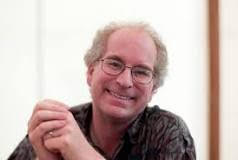 Brewster Kahle, founder of Archive.org Brewster Kahle, founder of Archive.org One of the greatest resources on the entire internet is the Internet Archive, also know as archive.org. This site is run by a rich guy ( and his team) in San Francisco and the goal is to be The Smithsonian of the Internet. This site allows for ANY AMOUNT of uploading FOR FREE. I believe in what they are doing so much I make monetary donations. From what I can tell, this is the closest thing to “permanent” the Net has to secure your files for the future. I am in the process of uploading every album I have ever made for free download and as many radio shows as I can before I leave this planet. I will never get it all done ( because there are thousands of shows) but my recommendation is to support and use archive.org. You can stream or download for free any files posted. OK, most of the stuff I have gone on about here is nothing new to anybody. I just thought it would be a good bookend to the previous posts I made. What is your opinion? Can you stomach the ills of the internet to use it for what it is good for? Does it work for you? …Don Campau 4-21-18 Cassette Culture was an Iceberg.
We all know that change is one of the only constants in life. So, it is not surprising that Cassette Culture would undergo a transformation as time went on. In fact, it was constantly changing (like everything does) but there were times when it sort of flipped and became something else. The advent of the affordable (for many at least) multi track recorder was one of these evolutionary moments. Teamed up with the small, easily obtainable recordable cassette this completed the picture and really jump started the entire movement. To me, it was never about cassettes per se but about the affordability and accessibility, the fact that almost anyone had a tape deck to play or record them on, and the breakthrough in sound fidelity meaning one could make and distribute music and sounds that were worth hearing. So, these were the primary tools. Some blank tapes, a recorder and a deck to make copies. Maybe you had a guitar, cheap keyboard or microphone. Next came the utilization tactics, the distribution. This was facilitated in the USA at least by the reviews section in the magazines of the time. As stated before, this was OP, Option, Sound Choice, Factsheet Five and then later Gajoob, Autoreverse and Electronic Cottage. There were others as well. Home tapers would also make little flyers they would include in their packages: invitations to compilations, announcements of new releases, strange mail art, etc. This was also a small time system of promotion and distribution. Many people still were ensconced in the traditional, capitalistic thinking though. Plus, not everyone had the expendable income to freely send out tapes to trade. Some deluded individuals actually believed that their cassette tape (probably shrink wrapped and professionally duplicated) would be their “ticket out of here”. (Side note: this only got worse when people could make their own CDs.) However, the stage was set for a community to be built. At the time I felt a palpable excitement that something new was breaking. It was artists claiming their birthright to exchange music, poetry, weirdo sound collages, noise, “talk” tapes, and even, in rare cases, blank tapes. Early on I offered free radio tapes to anybody who sent me a blank tape. They simply paid the postage and usually got a tape with their own music on it. I also usually sent people my own music in exchange even if they were only interested in getting airplay for theirs. A few years in I realized that many people did not want my tapes but only the exposure. That was fine although hardly community spirited. But, as I alluded to, not everyone was into the idea of the community. But, there were plenty who were. It was hard to tell how many but they seemed to be everywhere, or at least, in the USA, Europe, Russia, Japan, South America and Australia. I did get the rare tape from the mideast, or Northern Africa, or Hong Kong but those were pretty rare. So, for me, I imagined the scene as an iceberg floating in a sea of possibilities with everyone involved seeing or interacting with it from only their perspective. Some people had extensive contact with overlapping pools of traders. Others stayed within a certain clique they had established. I always wondered…how much am I not seeing? And, where are all the women? I did know a handful of female home tapers (including my future wife) and would ask them about it but no one really seemed to know. I am glad that in today’s music, art and experimental communities there are beaucoup women participating and creating amazing works and sharing them with the world. But then, it seemed rare. So, were there tons of people home taping and not involved in the exchange element? Well, probably. It was not as easy or fast as it is now. And how could we know? Years went by and people created bodies of work, made contacts and friends, did occasional gigs outside of their own areas, mailed out slews of tape albums, occasionally got reviews in the magazines , got some radio play (such as my show or Little Fyodor’s show in Colorado, or Lord Litter in Germany). But of course, the iceberg started to melt and there was slippage. The demise and change of some of the magazines, although inevitable for economic reasons, put a damper on things. Some mags popped up to replace the well known ones but ultimately they could not sustain themselves. Important people in this regard were Bryan Baker , who worked for years doing Gajoob (while making his own excellent music), Ian Stewart who ran Autoreverse (while being a home taper and also playing in bands such as “Devilcake”…who only did songs about food!), Hal McGee who published the hard copy version of Electronic Cottage (did his own music, and was a tireless champion of the scene) and there are probably some others that slip my mind right now. The next change was the advent of the CDR. One of the reasons musicians turned to the cassette in the first place was the cost and accessibility of the cassette. But, most audiophiles and fidelity snobs laughed at the poor tape. Who was going to take you seriously? Many bands and artists really wanted to make vinyl but the cost was prohibitive to most. And how could you release several albums a year if you spent all your money on one record? Vinyl was prestige, status and a mark that you had reached a different level. The “revolution” of the CD was, to begin with, a way for the record companies to spend less, raise prices, and make huge amounts of profit while appearing to be “cutting edge” and super high fidelity. Of course the CD itself would turn out to have one of the shortest life spans of any media type ever. But at the time (around 1995 or so) this was the next jump and major shift. The idea of the cassette tape started to fade as soon as it was possible to record and duplicate your own CD. At first it was kind of expensive so it took some time to be the next “lingua franca” of the home taper scene but it happened and it did the damage. So, the mags were gone, tapes were obsolete, the internet not yet in full swing…this created a void that some (many actually) could not overcome. Some people (like me and many of my friends) had fostered friendships that would persist and become vehicles for future contact with their own friend bases but I was lucky, I had a radio show. People still wanted to know me and send me their music. Most of them did not give a whit that I had my own music, they just wanted airplay. So the cheerleading and mutual support aspect of the home taper scene was already diminished and hobbling along on life support. So, this is when the scene died for many although not for me. Next time I will give my thoughts on the biggest change in all of our lives in regard to communication and one that everyone knows about in their own way…the internet. Is the internet inherently superficial? Is community only possible with social media? Is there any hope of creating the community that once was…and why should we? Oh by the way, I still accept your music for radio play. Please go to my submission link for all details: http://www.doncampau.com/NoPigeonholesSubmit.htm My pictures show the evolution and change in my own collection. I once had many thousands of tapes easily accessible in these revolving displays. But, years later I had shipped many tapes to Germany for Frank Maier's Tape-Mag.com project and needed room for the new CD shelves. Cassette Culture is described approximately as the time period from 1980-2000. There is some argument about this as many people had converted to CD by 1995 and the scene that had once flourished started to fade. The beginning date for this scene is also in question too. In Europe and Britain they generally list the “start” date for the Cassette Movement as about 1980 and namecheck Throbbing Gristle and other so called industrial bands as founding members of this period. In America things were a bit different, at least for me and many of the other home tapers I made contact with early on. In 1984 I bought a copy of OP magazine in a store in Seattle when I was there visiting. Option and Sound Choice magazines came about not long after and seeing the cassette reviews and offers of “will trade” was very exciting and inspirational to me. So, for me, Cassette Culture (we did not call it that at the time) did not begin until about 1984. Of course I had already been doing home recording for many years but had never packaged these songs into albums appropriate for trading to others. I quickly put together my songs into albums, made covers and started to write to the addresses in the mags. And because I had an existing radio show it soon became a vehicle for presenting these newly traded home tapes. I was very happy not only to acquire all this neat new music in many styles but to create, develop and maintain friendships and associations with many people worldwide. This was part of the revolution of this period. No agents, managers, or music business bullshit but actual one to one human interaction. I dedicated myself and my radio show to this scene and have done so ever since. In future pieces I will describe and outline how this has all evolved because to me this is not just about the period outlined above. To me, the community never died. It certainly contracted and changed but I have tended my relationships for the most part, continued home recording myself and sharing my music with others, and offering an outlet for underground musicians to get their music out to more ears on the radio and internet. Many, many others dropped out of sight, some stopped making music and almost everyone discontinued sending out as many packages in the post. So, I heard that the scene “died”. Perhaps for some but not for me. Others faded away (and some returned later) because it was a lot of work to be part of this. Making the music is taxing enough but to package it, mail it out, write letters, maintain relationships…well, it’s not easy and it costs money too. So, for almost 35 years I have stayed at it, daily. Things are easier in a lot of ways now and that will part of the next chapter. There was never any grieving for me of a scene gone by because it never left my consciousness or life. Sure, I have worked enormously hard and for a long time but I have done it out of love for the unique perspective it has given me and the relationships I have made. Much like the punk and mail art scenes (out of which some say it arose), Cassette Culture never had a leader or a centralized manifesto. Certainly there were various accepted “rules” (like don't screw people over if they bought your tape or wanted a trade), have a little patience (because the mail moved slowly then), have respect and act as politely as possible…but there was never supposed to be any “stars”…there was no “making it”…there was no “hierarchy”…anyone could enter at any level and trade tapes with as many people as they wanted. I always liked that. Some people were voracious traders, some didn't trade at all. Some people wrote long personal letters and others sent cryptic and confusing communiques. Sometimes people would take the next step and contact each other by phone, and then maybe in person. It is interesting to me that I have had relationships with many people I call friends and with some I have never met them or even talked to them on the phone. 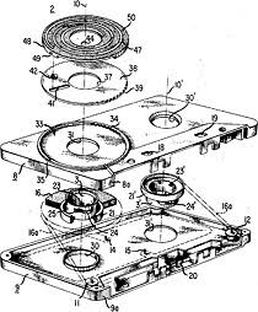 There are as many stories as there are participants in this culture. On my Living Archive site my goal was to get as many of those stories out as possible and expose people to as many unusual individuals doing their music at home and sending it out without regard to the music biz. I started The Living Archive in 2009 and spent several years hard at it daily. Then, I incorporated other things into my life (like helping to manage a community radio station and other things) and updating The Living Archive became difficult. I don’t do it much at this point. Occasionally I make new entries and articles but not much. Of course I still do my radio shows (I am on 4 separate stations currently plus podcasts and still record my own music) . However, there is a lot of timeless material there. Check the link in the sidebar. And it was always meant to be interactive. Cassette Culture still lives with me and that’s why I called my site, “The Living Archive Of Underground Music”. It is part of the continuum that began a long time ago now. There are still many stories to tell and history to be made. …Don Campau, 4-16-18 |
Don CampauMy name is Don Campau and I have been involved in underground and non mainstream music and radio since 1969. I continue to be an active home taper and Cassette Culture archivist with my own site, The Living Archive. Archives
August 2020
|
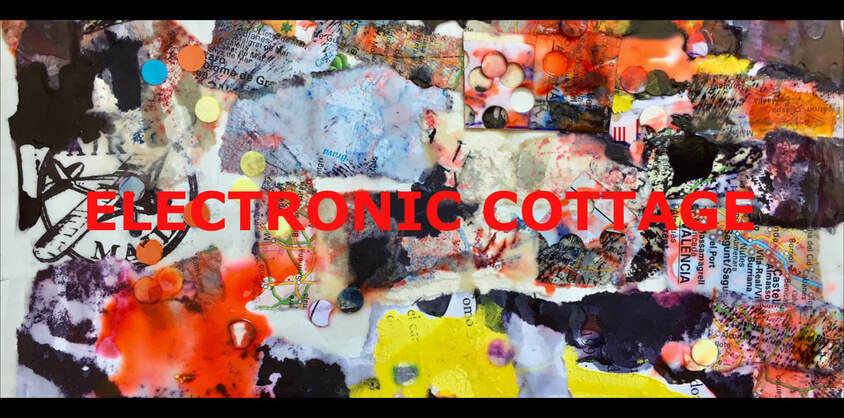
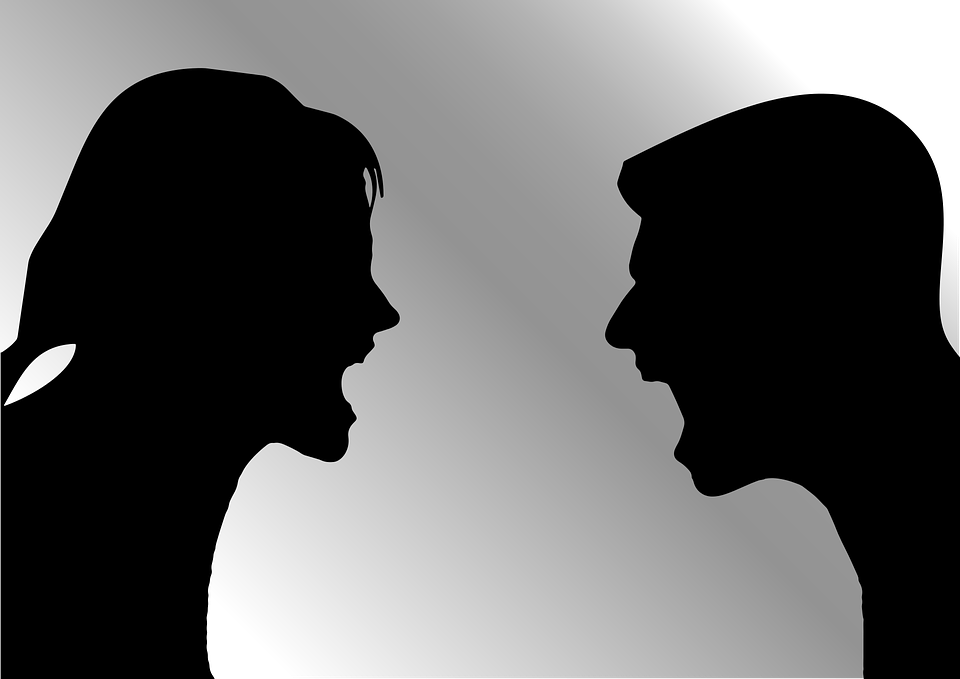
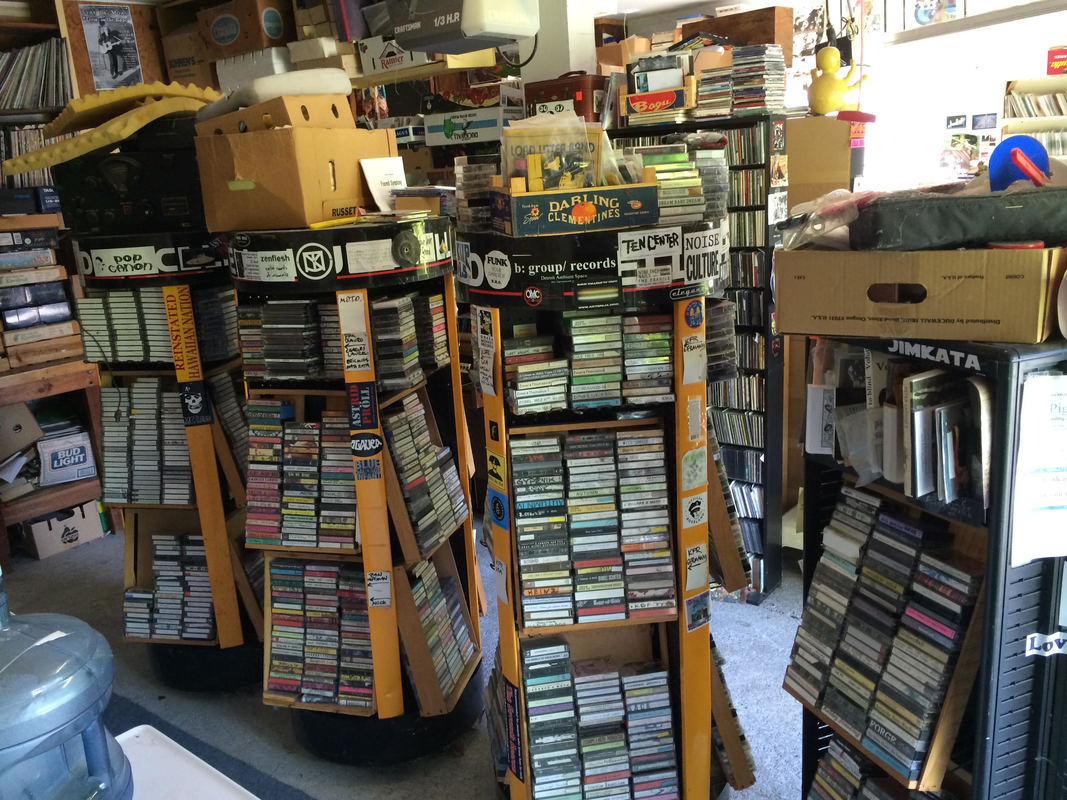
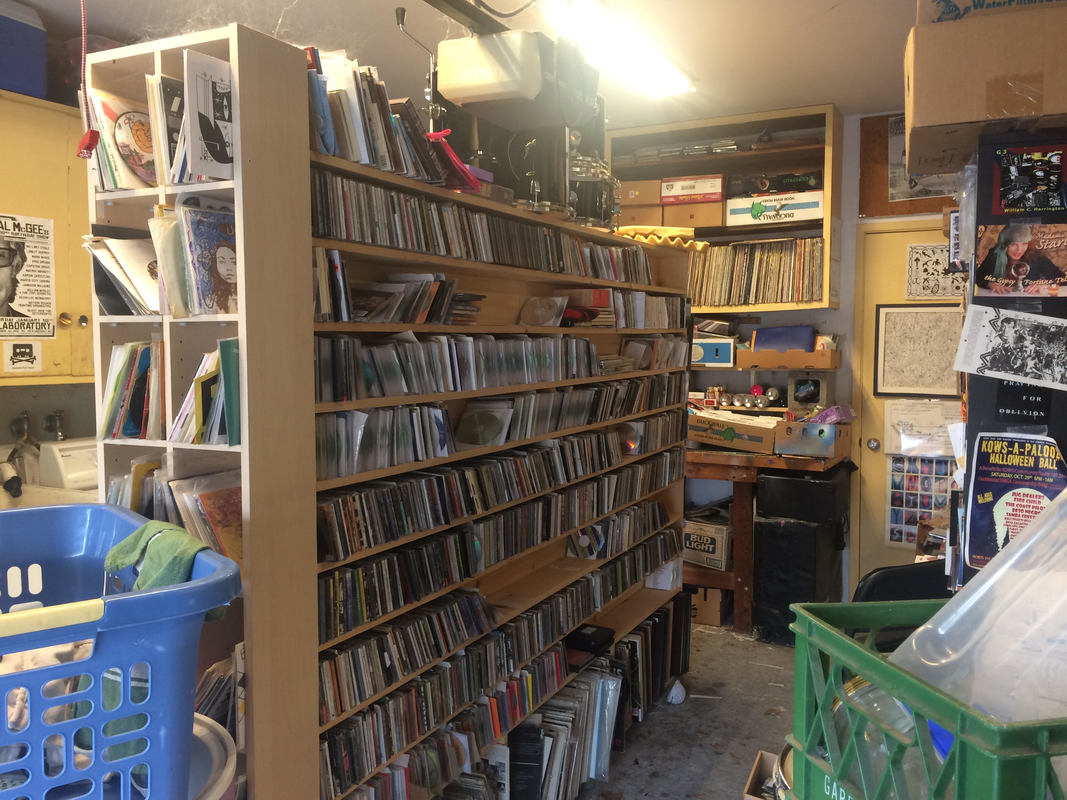
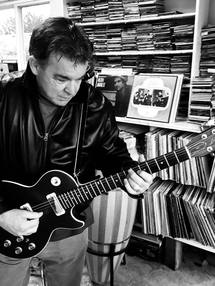
 RSS Feed
RSS Feed